Purdue Traditions
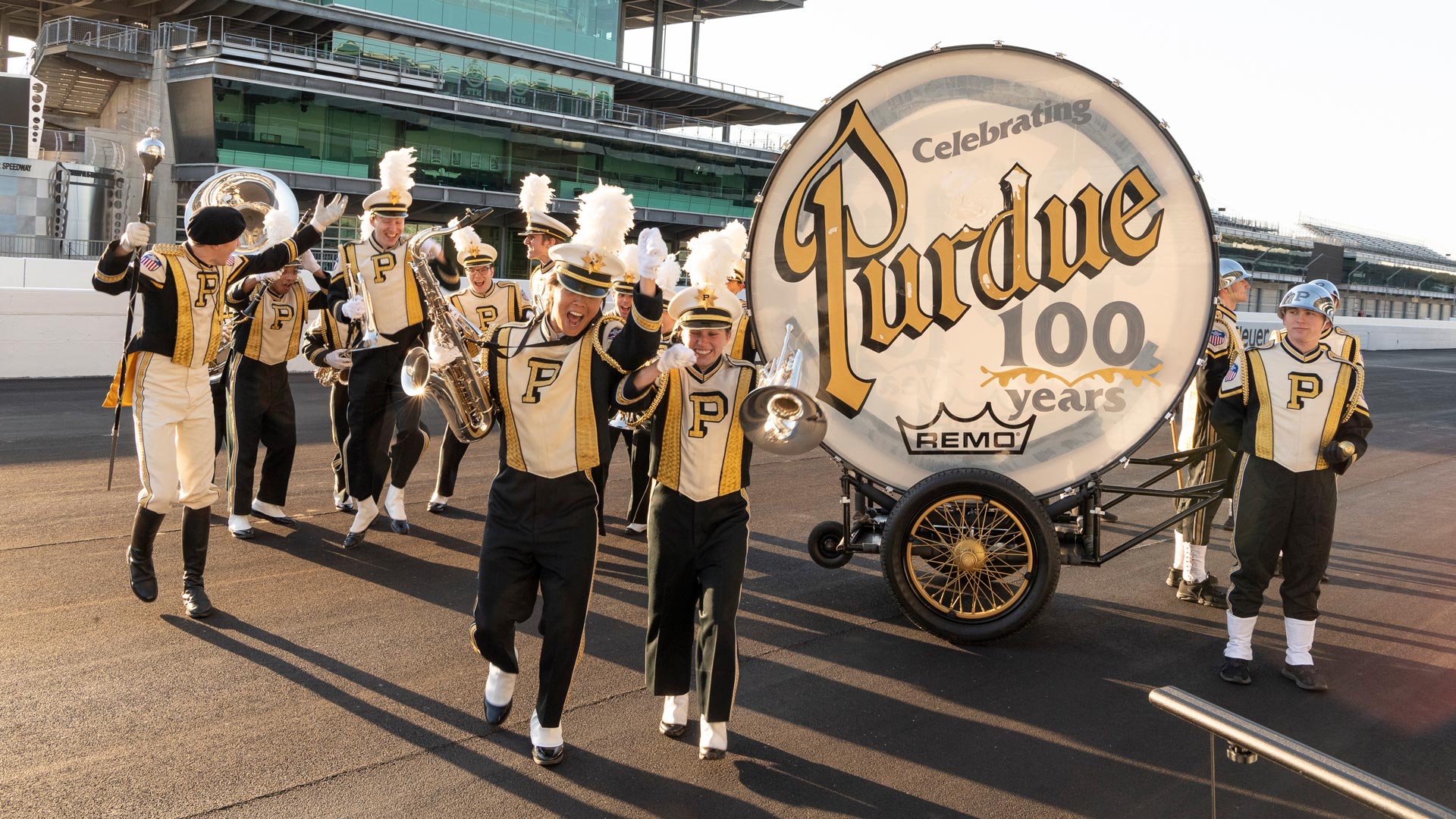
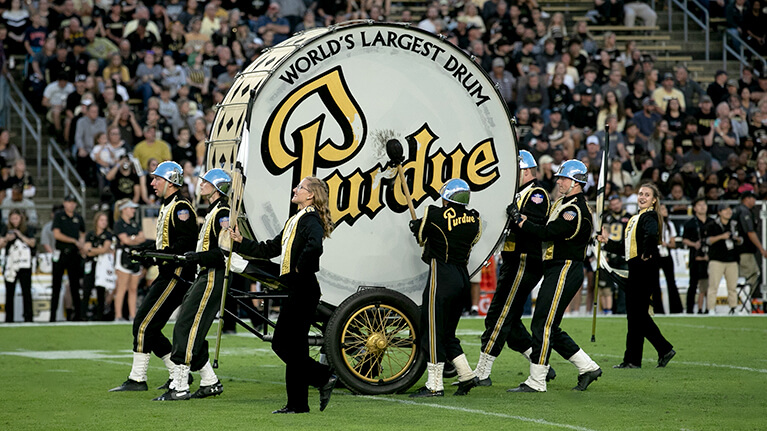
Big Bass Drum
Known as the “world’s largest drum,” it stands 10 feet tall on its field carriage and is handled by a crew of six band members, including two beaters. The drum draws attention wherever it goes from fans who want their picture taken with the instrument. It still has its original 1921 frame, which is 8 feet in diameter and nearly 4 feet between its two heads.
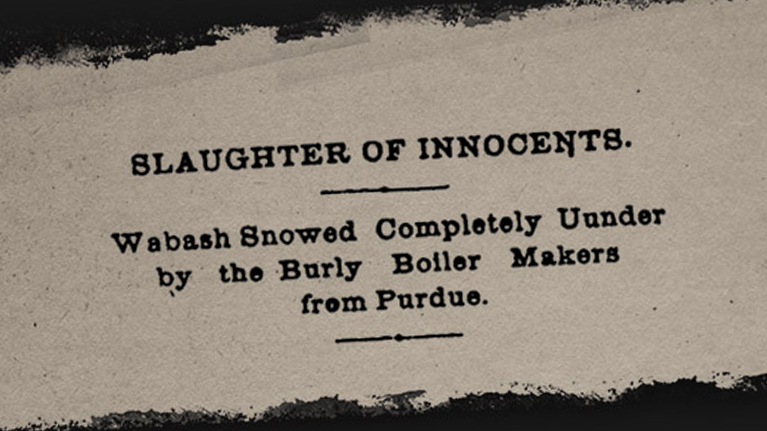
Boilermakers
The moniker for the University’s athletics teams has become a popular reference for all things Purdue. A reporter first used the name in 1891 to describe the year’s winning football team as “Burly Boiler Makers from Purdue.” The nickname quickly gained approval from students.
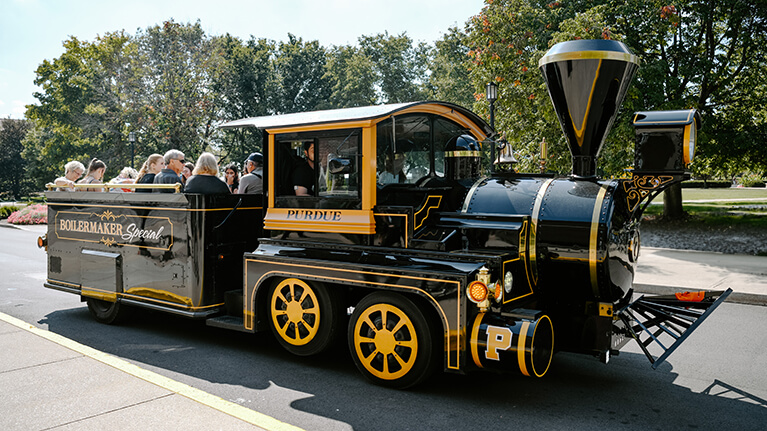
Boilermaker Special
The locomotive design of Purdue’s official mascot celebrates the university’s renowned engineering programs. The Boilermaker Special was presented in September 1940 and has been used to announce campus events ever since. Rides on the Special can be arranged through the Purdue Reamer Club.
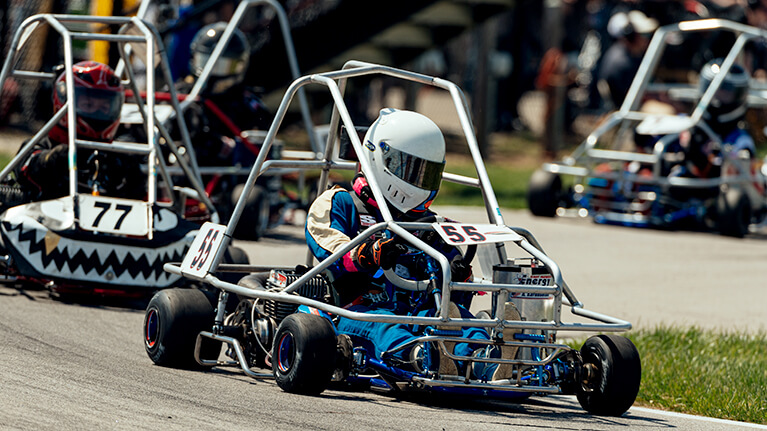
Grand Prix
This 50-mile, 160-lap go-kart race is “The Greatest Spectacle in College Racing” and wraps up Gala Week each year. All 33 participating karts are made from scratch by student teams. The event has been raising money for student scholarships since it began in 1958.
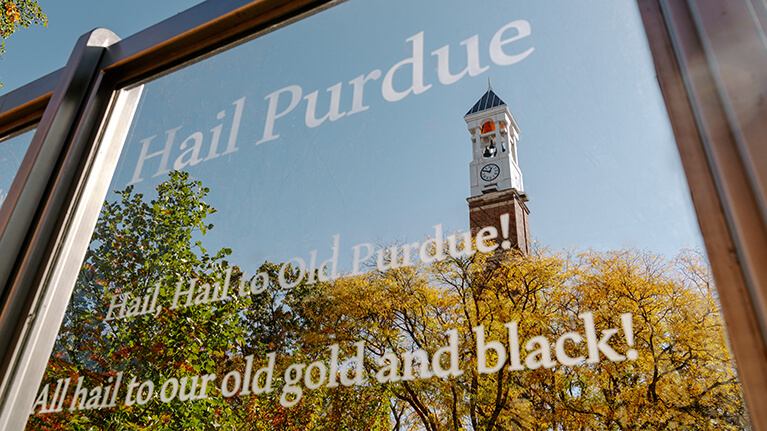
“Hail Purdue!”
While university events are the most likely place for Boilermakers to join in a chorus of Purdue’s official fight song, it’s not uncommon to hear it somewhere on campus every day. The song was composed in 1912 by Edward Wotawa (music) and James Morrison (lyrics).
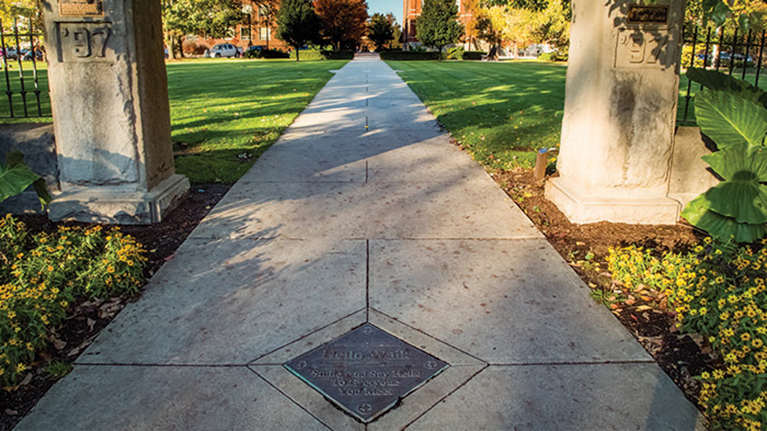
Hello Walk
Originally one winding walkway from the main entrance to University Hall, the Hello Walk now includes all the sidewalks that cross the Memorial Mall. As indicated by the name, people are encouraged to smile and say hello to everyone they meet along the way.
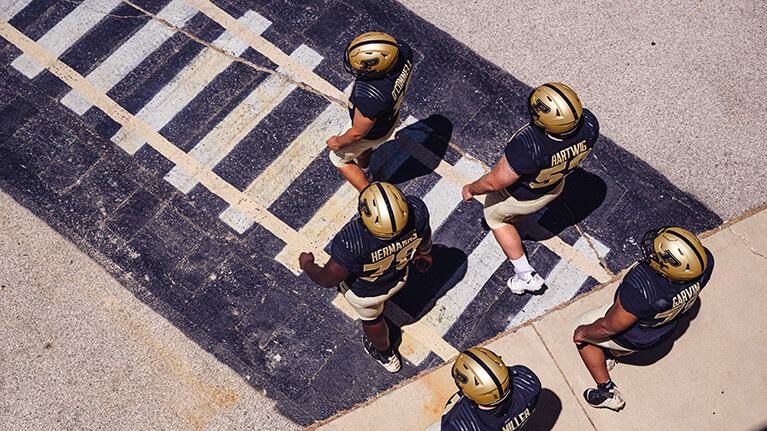
Old Gold and Black
Purdue’s colors were adopted in 1887, the first year of Purdue football. A self-appointed committee of students and faculty chose the colors so that the team could be distinctive for their first game.
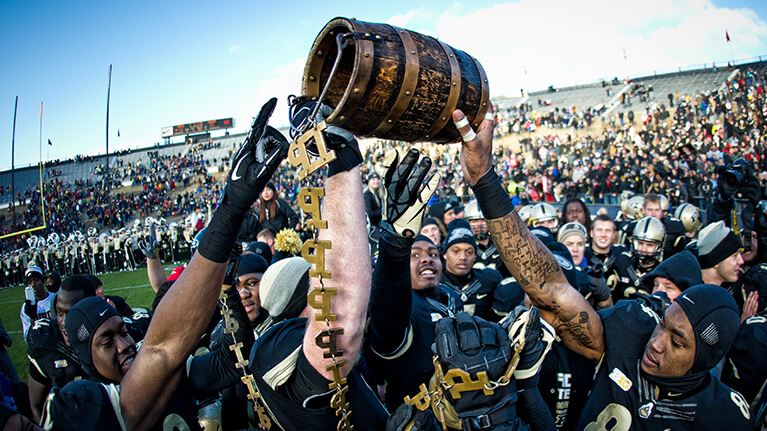
Old Oaken Bucket
Found on a farm in southern Indiana, the oaken bucket is one of the oldest football trophies in the nation. The winner of the annual Purdue-Indiana football game gets to add a bronze “P” or “I” chain link and keep the trophy until the next faceoff. Ironically, the first competition in 1925 led to a 0-0 tie, resulting in the first link on the chain being an “IP.”
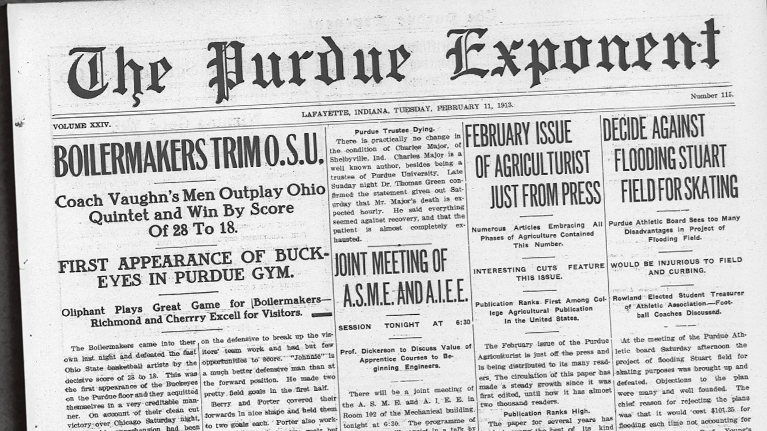
Purdue Exponent
Ask any group of West Lafayette students whether they’ve read today’s Exponent, and chances are you will get a resounding yes. The popular newspaper was founded in 1889 and is Indiana’s largest collegiate daily newspaper, with approximately 150 student staff members.
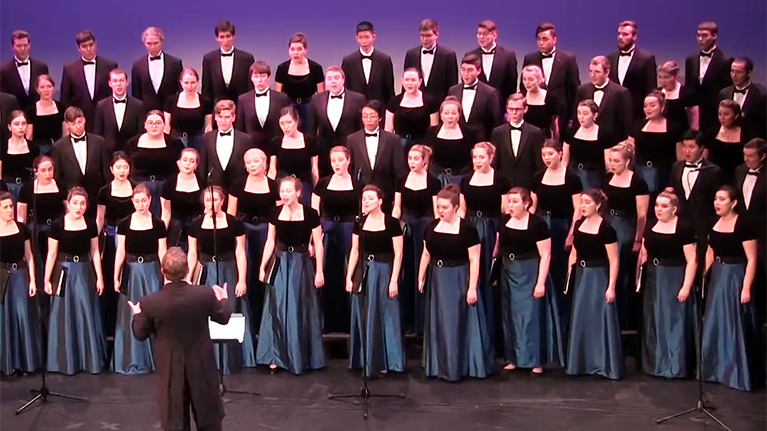
“Purdue Hymn”
The University Choir first performed the hymn on March 6, 1943, during a convocation in the Purdue (now Elliott) Hall of Music. Fifty years later, it was adopted by Purdue’s trustees as the university’s official anthem in response to petitions by hundreds of students and alumni.
Words and music were written by Alfred B. Kirchhoff in 1941. Kirchhoff did graduate study at Purdue while serving as a teacher, principal, choirmaster, organist and youth leader at St. James Lutheran Church and School in Lafayette.
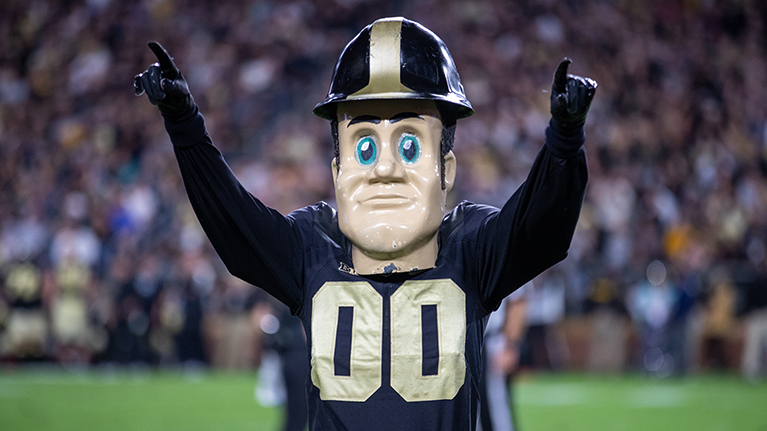
Purdue Pete
What started as an advertising logo for the University Bookstore in 1940 has become one of Purdue’s most recognized symbols.
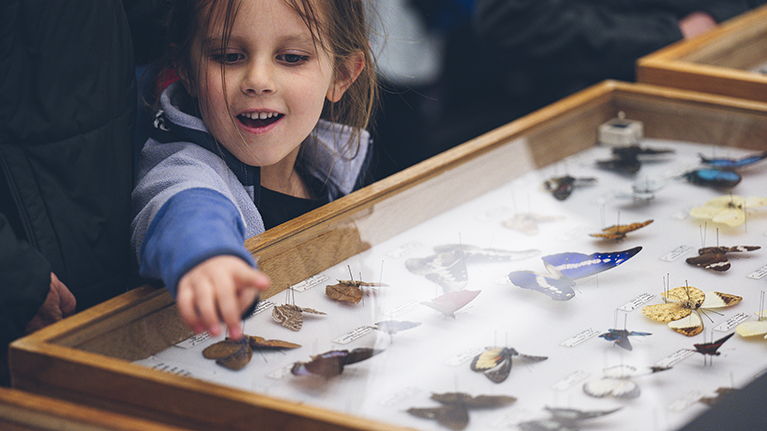
Spring Fest
This annual, two-day event draws tens of thousands of participants each year with attractions hosted by a variety of Purdue schools and departments. Fun and interactive activities like the popular Bug Bowl showcase the lighter side of education for people of all ages.